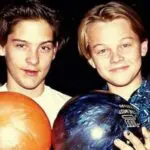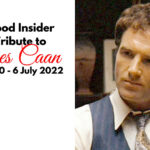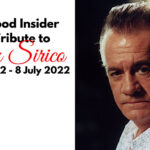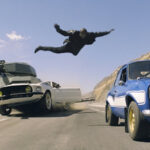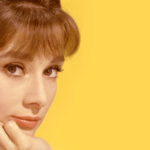Table of Contents
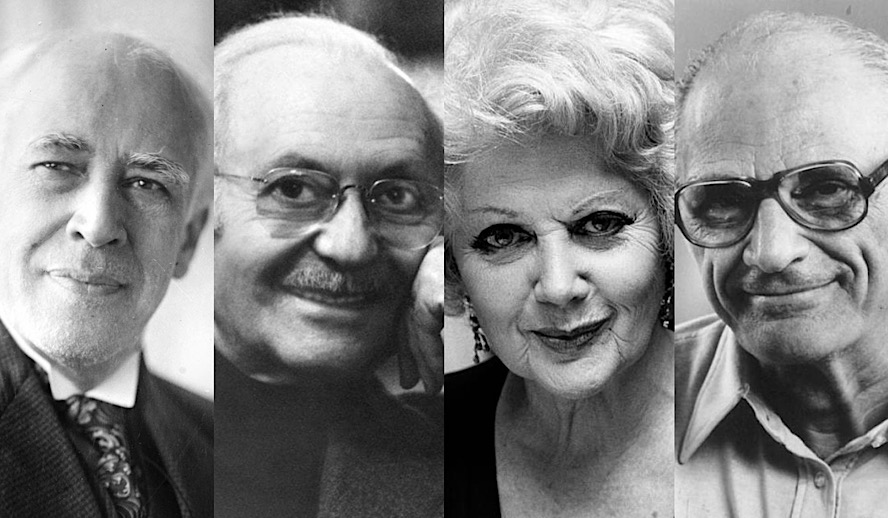
Video Version of this Article
Photo/Video: Stanislavski, Strasberg, Adler & Meisner/Hollywood Insider YouTube Channel
Before ‘Lights, Camera, Action!’, there was the stage–the theatre. Sometime around the 6th century BC, vibrant theatre traditions began to flourish in classical Athens, Greece, and evolved as various cultures of performers, writers, poets, and artists experimented across the globe with this artistic medium. You may have heard the word thespian tossed around in your high school, claimed proudly by the happy-to-be theatre folk, quoting Shakespeare and practicing their prose and accents.
Held in honor of the Greek God Dionysus (known as the God of wine but later deemed as a patron of the arts, he was dualistic in nature–associated with divine joy and ecstasy as well as brutal/blinding rage) was the festival ‘City Dionysia’. It featured competitions in music, poetry, dancing, and singing. A notable winner was a wandering bard named Thespis who, according to tradition, astounded audiences and was the first actor in Greek drama. It was from Thespis that this word was coined, and is commonly used today to describe that which is related to drama and theatre.
Related article: Golden Globes 2021: All the Joyful Winners, Exciting Details and Emotional Speeches | Read the Whole Story
The evolutionary art of acting and performance is one that is traced back to many great visionaries, performers, and teachers, some of which fought vigorously to shape and reshape the fundamental structure and scientific approach of emotion, character, and movement. They not only embodied an unbridled passion for the art form, but endlessly sought to explore the limits of the imagination, transcend boundaries, and sculpt the architecture for the art form we see in modern film and theatre today.
The Greatest Acting Teachers:
Konstantin Stanislavski
You may have also heard, either in the theatre or film community, someone sardonically snicker something like “He’s so method.” The person would have been referring to the naturalistic performance technique known as ‘method acting’. Stanislavski formed the fundamentals of this system and is sometimes deemed as the “father of the method”, which was later adopted and extrapolated by other well-known teachers as a result of his influence, such as Lee Strasberg–who is also referred to as the “father of the method.”
Stanislavski was a Russian stage-actor and director–and in my opinion– something like a scientist to the world of acting. He founded the Moscow Art Theatre, which drastically changed American theatre after touring the States. Stanislavski started studying the art of acting in his teens and held high standards and aspirations for himself as a performer, always eager to get to the heart of what made the form of expression profound and authentic, and unscramble the mystery of combining the need to pretend with the need to express something true.
Subscribe to Hollywood Insider’s YouTube Channel, by clicking here.
Stanislavski himself struggled to perform authentically in a way he was satisfied with, attempting anything and everything in his efforts to achieve greatness. He had many successes and failures, but even in his most mediocre, he continued to crank the levers–strenuously hurtling through trial and error to capture the essence of the art form. After a strifling undertaking that lasted years of his life (searching, experimenting, studying, and failing), eventually, he struck gold and went on to design an integral psychological tool for performers, employing the most popular acting basics of modern times.
His theory involved the exhibition of realistic acting by instructing performers to draw from experiences of their own lives, engaging in a deep understanding of character motivation, circumstance, and unassuming realism to provide a significant depth to their performance. This approach emphasized dramatic self-analysis and discipline with emotional memory. He encouraged actors to ask the five Ws: ‘Who, What, When, , and Why.’ He used this approach to help substantiate a reservoir from which the emotion would not just ‘appear’ authentic, but actually, be felt and integrated within the exploration of the character. Some of the greatest actors in film and theatre today have stood behind this method, and it continues to enrich the quality of transcendent believability in performances all around the globe.
Related article: The Power of Positivity: Ikorodu Bois + Chris Hemsworth + Russo Brothers + Sam Hargrave
Limited Time Offer – FREE Subscription to Hollywood Insider
Lee Strasberg
“The human being who acts is the human being who lives. That is a terrifying circumstance. Essentially, the actor acts a fiction, a dream; in life, the stimuli to which we respond are always real. The actor must constantly respond to stimuli that are imaginary. And yet this must happen not only just as it happens in life, but also actually more fully and more expressively. Although the actor can do things in life quite easily, when he has to do the same thing on the stage under fictitious conditions, he has difficulty because he is not equipped as a human being merely to playact at imitating life. He must somehow believe. He must somehow be able to convince himself of the rightness of what he is doing in order to do things fully on the stage.” — Lee Strasberg
Although Stanislavski was the original architect of the system, Lee Strasberg is often regarded as the “father of the method in America” for his revisions and his successful integration of these teachings in the U.S. He was densely concentrated on using emotional identification to find a way “in”, incorporating affective memory and improvisation for authenticity. Strasberg was an actor, director, and theatre practitioner who emigrated to New York in 1909 from what was then Austrian Poland (now Ukraine). Years later, after dropping out of high school, Lee acted in a small part in his first Yiddish language production performed by the Progressive Drama Club. His true passion for the art blossomed after witnessing a production by the Moscow Art Theatre, which inspired him to study the style and teachings of Stanislavski. Before then, he had never witnessed an ensemble surrendering their egos to act; he was invigorated.
Polishing Stanislavski’s system, he solidified “the method”, dealing with the psychological depths of acting while demanding strict discipline. Most actors today, upon first exposure to the art form, are taught the fundamental exercises that were developed in his studio, ‘The Actor’s Studio’, which yielded some of the first great film and theatre actors to date.
Related article: Hollywood Insider’s CEO Pritan Ambroase: “The Importance of Venice Film Festival as the Protector of Cinema”
Related article: The Masters of Cinema Archives: Hollywood Insider Pays Tribute to ‘La Vie En Rose’, Exclusive Interview with Director Olivier Dahan
Stella Adler
Stella Adler, a gifted American actress, and teacher, was another one of the significant figures in acting history, as she offered another technique that emphasized analysis of the script and respect for the playwright. Her ideas differed from the others in terms of utilizing their own life experiences to provoke authentic emotional responses. She felt that the substitution of a real emotion or trauma to elicit authentic feeling in a character was potentially damaging, and formulated a new structure to maintain depth in performance while discarding the memory recall premise.
She felt that the character’s life experiences, circumstances, and personality could be determined through an intense breakdown of the script itself. She instructed performers to align the character’s circumstances to their own actions, or vice versa, as opposed to warping the character to suit their own personal emotional recall. She believed in curiosity and observation as fuels for imagination, creating imagery in order to deliver truthful performances and communicate big ideas that serve humanity.
Related article: EVOLUTION: Every Meryl Streep Role From 1977 to 2021, All Performances Exceptionally Poignant
Related article: If Oscars New Rules Had Existed 80 Years Ago, These Deserving Stars Would Not Have Been Ignored
Sanford Meisner
“To be an interesting actor – hell, to be an interesting human being – you must be authentic and for you to be authentic you must embrace who you really are, warts and all. Do you have any idea how liberating it is to not care what people think about you? Well, that’s what we’re here to do.” — Sanford Meisner
Sanford Meisner was an American actor and acting teacher born in Brooklyn to two Jewish immigrants who came to the United States from Hungary. He studied under Lee Strasberg, but was known for developing an entirely new set of exercises that focused heavily on the underlying impulses of the actor and the “reality of doing”. Before his ambitions as an actor, Strasberg was a pianist but was pulled out of school to help with the family business.
Meisner’s unconventional approaches to method were considered unorthodox, but have been widely successful to date. The “Meisner Technique” is described as a step-by-step procedure of self-investigation. His experimental exercises are geared to inspire actors to “live truthfully under imaginary circumstances”, encouraging the performers to respond to their instincts and the stimuli of the present environment.
His idea was to probe actors to get out of their own heads, emphasizing a responsiveness to the other actor as opposed to one’s own internal feelings and character. His unique approach involves repetition exercises, often using dialogue as a vehicle but highlighting the subtlety of emotion for transitions in order to mitigate the staleness of words and keep his performers tuned, present, and spontaneous. This method is commonly used today and is recognized as a fundamental acting technique globally.
Related article: Will the Diversity in Victory of Last Year’s Oscars 2019 – 91st Academy Award Winners Ever Be Repeated?
Related article: Video | The Artist Evolves: All Leonardo DiCaprio Roles & Performances, 1980s to 2020 Filmography
Tribute to The Greatest Acting Teachers
It’s clear that while everyone is influenced by someone, the world of film and theatre would be very different without these passionate creatives and their elaborately inspired leap-frogs off each other’s teachings. It is their belief and dedication to the craft that pushed them to keep expanding boundaries while searching and experimenting, ultimately leading them to break the precipice of some utterly remarkable strategies for engaging in truthful, transcendental artistry. These acting architects are the backbone of theatre, film, and television today. Their fearless perseverance, inquisitive analysis, and honorable dedication to the sacred mysteries of performance live on–in every household, in every dressing room behind the stage, in every chatty acting class, at each fast-paced film set, in every thespian, and in anyone who has ever been impacted by a truly unforgettable performance.
Click here to read Hollywood Insider’s CEO Pritan Ambroase’s love letter to Black Lives Matter, in which he tackles more than just police reform, press freedom and more – click here.
An excerpt from the love letter: Hollywood Insider’s CEO/editor-in-chief Pritan Ambroase affirms, “Hollywood Insider fully supports the much-needed Black Lives Matter movement. We are actively, physically and digitally a part of this global movement. We will continue reporting on this major issue of police brutality and legal murders of Black people to hold the system accountable. We will continue reporting on this major issue with kindness and respect to all Black people, as each and every one of them are seen and heard. Just a reminder, that the Black Lives Matter movement is about more than just police brutality and extends into banking, housing, education, medical, infrastructure, etc. We have the space and time for all your stories. We believe in peaceful/non-violent protests and I would like to request the rest of media to focus on 95% of the protests that are peaceful and working effectively with positive changes happening daily. Media has a responsibility to better the world and Hollywood Insider will continue to do so.”
Ways to support Black Lives Matter Movement to end systemic racism
More Interesting Stories From Hollywood Insider
– Want GUARANTEED SUCCESS? Remove these ten words from your vocabulary| Transform your life INSTANTLY
– Do you know the hidden messages in ‘Call Me By Your Name’? Find out behind the scenes facts in the full commentary and In-depth analysis of the cinematic masterpiece
– A Tribute To The Academy Awards: All Best Actor/Actress Speeches From The Beginning Of Oscars 1929-2019 | From Rami Malek, Leonardo DiCaprio To Denzel Washington, Halle Berry & Beyond | From Olivia Colman, Meryl Streep To Bette Davis & Beyond
– In the 32nd Year Of His Career, Keanu Reeves’ Face Continues To Reign After Launching Movies Earning Over $4.3 Billion In Total – “John Wick”, “Toy Story 4”, “Matrix”, And Many More
stanislavski, stanislavski, stanislavski, stanislavski, stanislavski, stanislavski, stanislavski, stanislavski, stanislavski, stanislavski, stanislavski, stanislavski, stanislavski, stanislavski, stanislavski, stanislavski, stanislavski, stanislavski, stanislavski, stanislavski, stanislavski, stanislavski, stanislavski
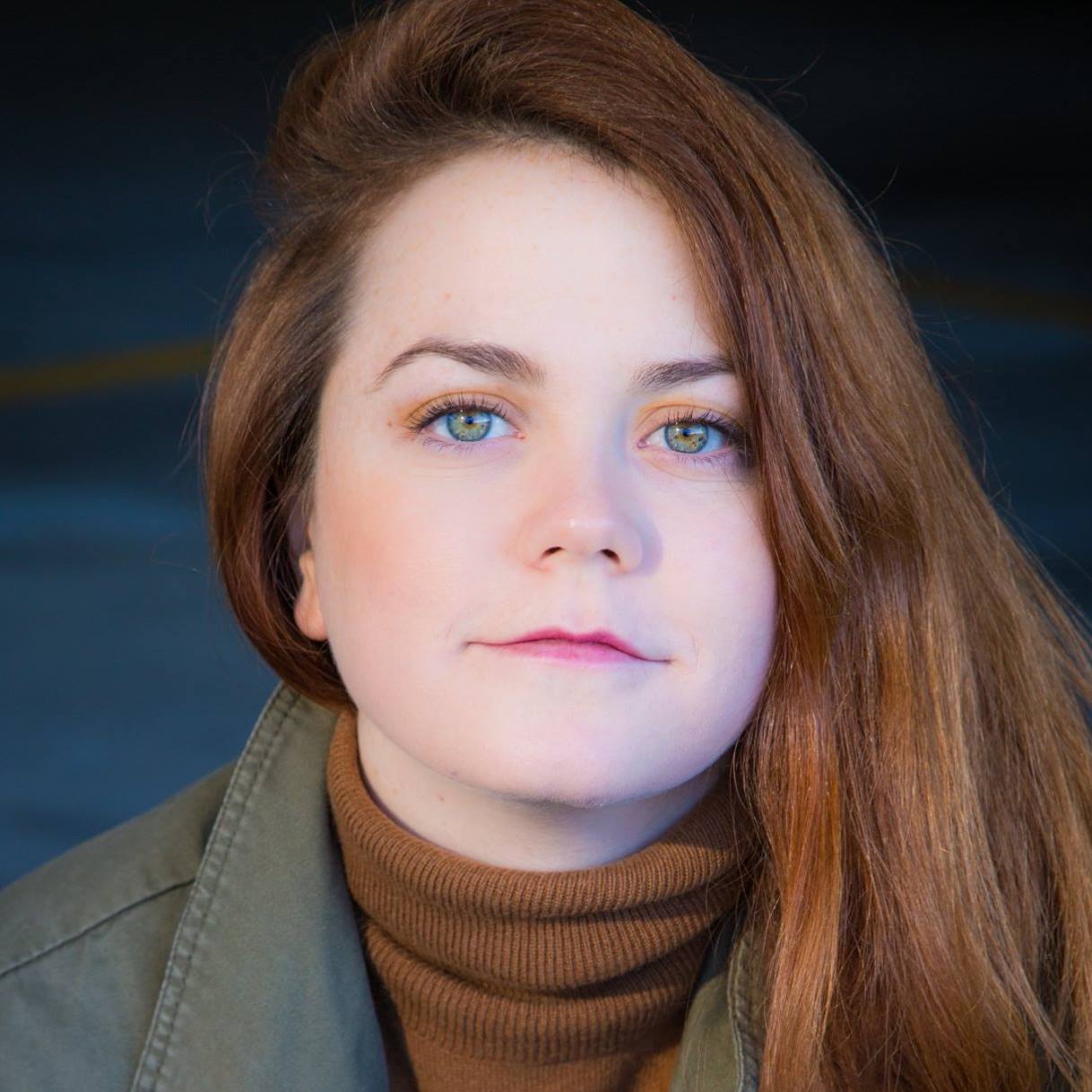
Melissa McGrath is a writer for Hollywood Insider, offering rich and engaging content for reviews and features. Melissa feels at home with Hollywood Insider’s lively team who share an equal passion for the art of cinema. Having sought out compelling stories her whole life, she is eager to examine and share her observations with others interested in thought-provoking material. She believes in changing the world through meaningful dialogue and hopes to provide helpful insight with her work. She values open discussions concerning morality, culture, personal development, and holds a soft spot for cathartic humor. Through the art of storytelling, journalism, and cinema, Melissa seeks to help build a strong community of free-thinkers and cultivate a deeper understanding of the human experience.

